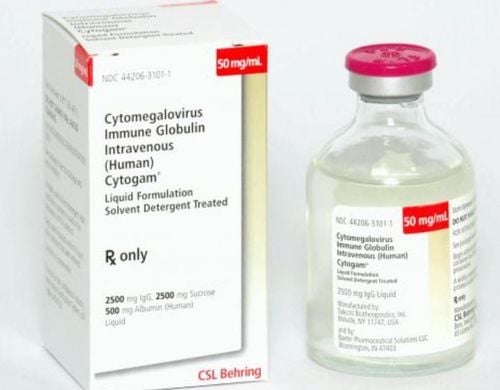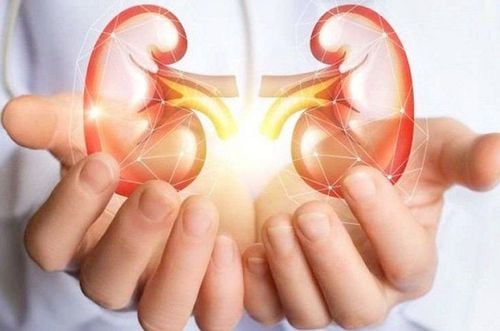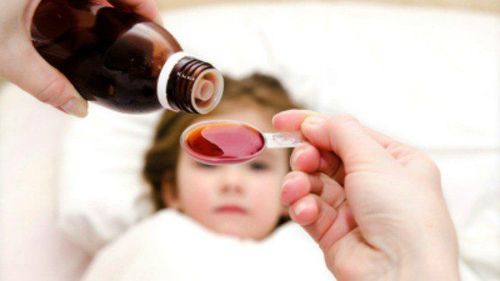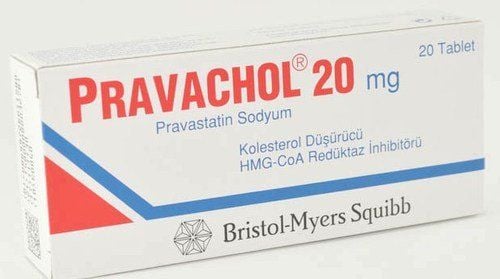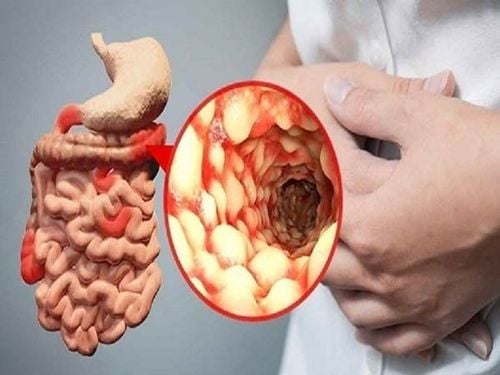This is an automatically translated article.
Children with nephrotic syndrome, even though their symptoms are well controlled, it is inevitable that the kidneys will recur. Caring for children with nephrotic syndrome should pay attention to daily monitoring of children.1. The possibility of recurrent kidney failure in children
Parents in the process of taking care of a child with nephrotic syndrome may notice signs of recurrent nephrotic syndrome when they discover that the child has lost a large amount of protein in the urine for 3 consecutive days. In some cases, pediatric patients may relapse 2-3 times or more. If your child has frequent relapses, the doctor may start adding a drug in combination with prednisone to prevent relapses. Combination of drugs is indicated based on the disease condition of each specific case.
It is important for parents to note that the future kidney function of their child will depend on the response to prednisone. If a child responds well to prednisone (steroid) and goes into remission, he or she is likely to be cured of nephrotic syndrome and has normal kidney function in adulthood.
2. Guide to test urine in the morning to check for kidney failure
If you know how to check for weak kidneys by performing a test on your child's morning urine with test strips, it will be very helpful in monitoring your child's disease at home, helping parents know when proteinuria is lost through the kidneys. stopped and symptoms achieved remission with prednisone treatment.
Should be done 1-2 days after the child takes prednisone about 7 days, or when the edema has improved. When three consecutive days of urinalysis shows no protein in the urine or traces, remission has been achieved. Early detection of proteinuria with test strips can help reduce the severity of relapses.
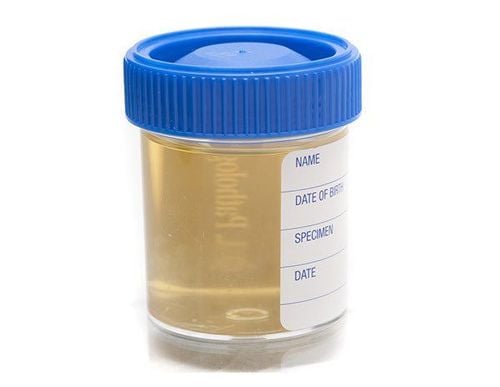
Thử nước tiểu buổi sáng cho con dùng lọ chứa sạch không cần vô khuẩn
If the child is found to have signs of edema or a cold, parents should test the child's urine, because a cold can be a favorable condition for the recurrence of the disease.
Children with recurrent nephrotic syndrome when tested with a test strip and found that the protein index in the urine reached 3+ for 3 consecutive days. It's best to test your child's urine with a test strip once a week or every 2 weeks even if the child's prognosis is good.
Parents should prepare a notebook with the date, urine test results, prednisone dose, general health condition of the child and bring it with each doctor visit. This will help monitor your child's response to treatment. Here's a specific example of how to follow up after each morning urine test for your child at home:
| Ngày | Kết quả protein trong nước tiểu | Liều dùng Prednisone | Chú thích |
| 1/6/2019 | N (âm tính) | 10 mg | Khỏe |
| 2/6/2019 | N (âm tính) | – | Khỏe |
| 3/6/2019 | 1+ (30 mg/dL) | 10 mg | Cảm lạnh |
| 4/6/2019 | 2+ (100 mg/dL) | – | Cảm lạnh và sốt |
3. How to take care of a child with nephrotic syndrome
3.1 Does the child need a special diet?
When children have a lot of edema, should avoid salty foods and limit salt when cooking. However, if your child is eating meals at school, adding a small amount of salt will not cause significant harm.
Children with nephrotic syndrome are encouraged to eat low-calorie foods, such as vegetables and fruits when they are hungry, rather than high-energy foods such as chips, cookies and crackers. .
3.2 Can children go to school and play sports?
Isolating children, not going to school or limiting physical activity does not prevent the risk of kidney failure from returning. On the other hand, sports activities help strengthen skeletal muscles, so children can grow up to be normal healthy adults.
It is important for parents and schools to educate the child so that the child becomes a normal person who can make a living and best support his family.
3.3 Can vaccines be given?
All children with nephrotic syndrome should receive all vaccines according to the national expanded program of immunization, however the following should be excluded: live vaccines such as chickenpox, measles, tuberculosis.
These vaccines should not be given to children during treatment with high doses of prednisone or when the child is being treated with other immunosuppressive drugs other than prednisone.
To be able to vaccinate your child, parents should wait a month after stopping high-dose prednisone or having reduced it to a low-dose. However, parents need to discuss carefully with the doctor before deciding to vaccinate their children.

Trẻ bị hội chứng thận hư vẫn có thể tiêm các loại vắc xin phù hợp
3.4 When should I take my child to the doctor?
Parents should take their child to the doctor immediately if they notice signs of recurrent kidney failure, including any of these symptoms: fever, severe abdominal pain, swelling or pain in the limbs, vomiting or diarrhea. When a child has edema, important factors in protecting the child against infection are lost in the urine, making the child more susceptible to bacterial infections.
If the child has more than 3 days of proteinuria reaching 3+, it means that the child has had recurrent kidney failure, need to take the child to see a doctor along with the urine test results. Typically, children will be restarted with prednisone at a dose of 2 mg/kg/day. Until the child is in remission of symptoms, tests for protein in the urine or is negative for 3 days, then the child can be reduced the dose of prednisone as prescribed by the doctor.
If the results show that the child has only proteinuria for 1-2 days, which means that the child is healthy, without edema, the child usually does not need to take prednisone again and this phenomenon usually goes away on its own.
If your child is accidentally exposed to chickenpox, there is a chance that a child will develop a severe illness. Therefore, parents need to take their children to see a doctor within 24 hours after their children come into contact with a patient with chickenpox.
4. Treatment with kidney transplant surgery and dialysis
In some cases, the doctor may recommend surgery to remove one or both of your child's kidneys. This surgery stops protein from being lost in the urine and reduces the risk of potentially serious problems like blood clots.

Chạy thận và ghép thận là một lựa chọn sau điều trị cho bệnh nhi bị thận hư tái phát
Please dial HOTLINE for more information or register for an appointment HERE. Download MyVinmec app to make appointments faster and to manage your bookings easily.





